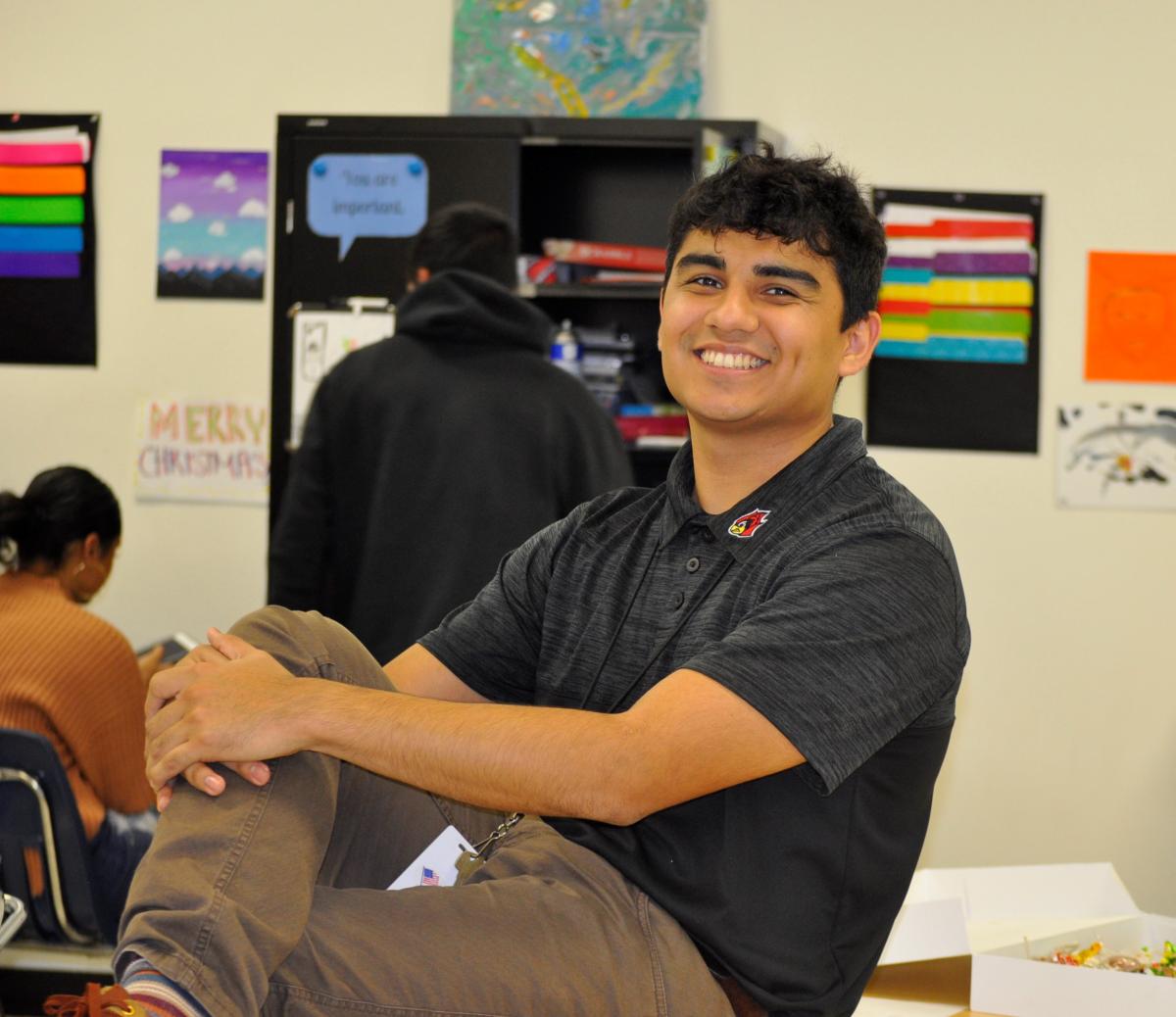School Library Month Student Spotlight: Mathew Zuniga
April 19, 2021
It comes as no surprise that Mathew Zuniga, a master's student in the Library Science with School Librarian Certification program was named Teacher of the Year for the 2020-2021 academic school year by the Del Valle Opportunity Center. Zuniga is excited and passionate about education and school libraries. Born and raised in a small town in the Rio Grande Valley, TX, Mathew graduated in 2017 from Texas State University in San Marcos with a B.A. in English, a minor in Education, and a teacher's certification. After graduation, he immediately started work at Del Valle’s District Alternative Education Program (DAEP) before starting as an English III, Speech, and Journalism teacher at Del Valle Opportunity Center. Since then, he has worked in alternative education and brought elements of a traditional school library to a campus with a library but no librarian.

Zuniga is helping to make a difference in the lives of his students in underserved communities, and has successfully implemented two reading programs that promote not just a love for reading for participants, but also opens doors for new opportunities to interact with others in different ways.
In honor of School Library Month, we spoke with Mathew about his work and what he thinks is the value of school librarians:
DIS: How did you develop an interest in School Librarianship?
MZ: I developed an interest in School Librarianship through the different ways I engaged with education. Specifically, working as an English teacher at an alternative high school showed me how teaching and learning can come in very different forms and produce different outcomes when the emphasis is put on the individual student's interests. I found the school library shares a similar ethos and allows for the flexibility of lessons and autonomy of students. Ultimately, I am interested in School Librarianship because the school library allows for students to explore, be creative, research, and engage with information in their unique ways.
DIS: Why do you think School Librarians are important in schools and the community?
MZ: School Librarians matter and are more important to schools and communities than some may realize. The School Librarian exists to bring together students, parents, educators, and community members. A well-run library can become a hub for all the aforementioned stakeholders and promote literacy, teach digital literacy, create partnerships, and add to community engagement. All this to say school libraries can provide a safe learning environment for all members within a community.
DIS: What do you love most about your job?
MZ: I have worked as both an elementary summer school librarian and as a dual teacher-librarian on my high school campus. In both, I found a lot to love. Something as simple as reading a book from your childhood to excited 1st graders can really bring so much joy. This same joy, mixed with a sort of pride, can be felt when working with high school students, but now they are the ones reading to children. Being a librarian means being able to bring special moments on a regular basis. In this shared passion for learning what is there not to love?
DIS: Have you been working on/or have worked on a special project/research relating to your work?
MZ: The biggest project for me has been bringing elements of a school library to my alternative campus. Del Valle Opportunity Center (OC) has a library but no librarian. With how the budget currently stands, one is most likely not ever going to be in the picture. However, I’ve found that the flexibility of the alternative high school lends itself to having a teacher take the librarian role. I have successfully implemented two main programs: OC Book Club and the OC Readers. The OC Book Club is the only club on campus and brings students into the library to learn about different books and most of all give them a semblance of a traditional high school. The OC Readers is a bit more ambitious and is a collaborative effort between the OC and Children’s Development Center (CDC) across the street. OC students pick out and practice reading children’s books before going across to the CDC and spending half the day reading to the children and playing with them on their playgrounds.
DIS: How would you describe the impact of these programs on the students?
MZ: The OC programs give students an opportunity to participate in clubs and engage with literature in ways that don't usually exist in alternative high schools. Specifically, the OC Book Club impacts students by bringing together different student groups alongside teachers while setting aside time for socializing and interacting with different books while in the library. On the other hand, OC Readers offers students a sense of autonomy and pride as they choose which books they want to read to the CDC children. This experience is great as many students haven't worked with kids before and learn skills that they can use if they are, or plan to become parents. As students at the OC often are immigrants, within the foster care system, parents, or just often in-and-out of schooling it can be important to have library programs that give students an engaging incentive to come back to school every day.
DIS: What have you enjoyed about the UNT School Library program?
MZ: The UNT School Library program has been an excellent program to grow and learn from.
First and foremost, it must be noted that the professors and assistants have been
extremely kind, helpful, and understanding throughout this time. Some of the biggest
lessons learned from the program have come in the form of recognizing kindness and
how it can play a major role in one’s learning.
Published April 20, 2021